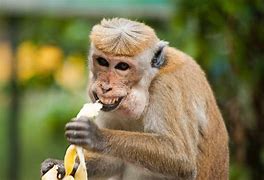Introduction: The Symbolic Connection
Banana:b4hnuk08dew= monkey have been linked in popular culture and scientific observation for decades. The sight of a monkey holding a banana is a common and endearing image, often depicted in cartoons, advertisements, and nature documentaries. This relationship goes beyond mere symbolism; it reflects a complex interaction between these fruits and primates that has intrigued scientists and nature enthusiasts alike. In this article, we delve into the fascinating connection between bananas and monkeys, exploring their ecological interactions, nutritional benefits, and the cultural impact of their association.
The Ecological Bond: Bananas in the Wild
Banana:b4hnuk08dew= monkey In their natural habitat, bananas play a crucial role in the diets of various primate species. Bananas, which are native to Southeast Asia and have been cultivated for thousands of years, are an essential food source for many types of monkeys. Wild bananas, which differ from the cultivated varieties we commonly consume, provide a rich source of nutrients and energy for these primates. Banana:b4hnuk08dew= monkey
Banana:b4hnuk08dew= monkey Monkeys, such as capuchins, spider monkeys, and baboons, are known to forage for bananas in their natural environments. These fruits offer vital vitamins and minerals, including potassium and vitamin C, which are crucial for the health and well-being of these animals. The availability of bananas in the wild often influences the behavior and movement patterns of monkeys, as they seek out these nutritious fruits to supplement their diet. Banana:b4hnuk08dew= monkey
The Nutritional Benefits of Bananas for Monkeys
Bananas are packed with nutrients that benefit monkeys just as they do humans. These benefits include:
- Energy Boost: Banana:b4hnuk08dew= monkey Bananas are a rich source of carbohydrates, which provide monkeys with a quick and sustained energy boost. This is particularly important for their active lifestyle, which includes foraging, climbing, and social interactions. Banana:b4hnuk08dew= monkey
- Potassium: Potassium is an essential mineral that helps maintain fluid balance, muscle function, and nerve signaling. Monkeys that consume bananas benefit from the high potassium content, which supports their overall health and vitality. Banana:b4hnuk08dew= monkey
- Vitamins: Bananas contain several vitamins, including vitamin C and vitamin B6, which are important for immune function, skin health, and metabolic processes. These vitamins contribute to the monkeys’ overall well-being and support their physical activities. Banana:b4hnuk08dew= monkeyBanana:b4hnuk08dew= monkey
- Dietary Fiber: The fiber content in bananas aids digestion and helps regulate bowel movements, which is beneficial for the digestive health of monkeys. Banana:b4hnuk08dew= monkey
Cultural Depictions: Bananas and Monkeys in Popular Media
The image of monkeys eating bananas has become a staple in popular media and culture. This depiction can be traced back to early cartoons, advertisements, and educational materials. Monkeys with bananas have been used to convey a sense of playfulness, curiosity, and innocence. Banana:b4hnuk08dew= monkey
One of the most iconic representations is the character of Curious George, a popular children’s book character who is often seen enjoying bananas. This portrayal has cemented the association between bananas and monkeys in the minds of audiences worldwide. Additionally, bananas have been used in advertisements to highlight the playful nature of monkeys and to market the fruit itself.
The Scientific Study of Bananas and Monkeys
Scientific research into the relationship between bananas and monkeys provides valuable insights into their ecological interactions and dietary preferences. Studies have examined how bananas impact the health and behavior of primates in both wild and captive settings.
- Behavioral Studies: Research has shown that the availability of bananas can influence monkey behavior, including foraging patterns and social interactions. Monkeys are known to compete for bananas, which can affect group dynamics and hierarchy.
- Health Impact Studies: Scientists have studied the nutritional benefits of bananas for monkeys, focusing on how the fruit affects their health, growth, and reproduction. These studies contribute to our understanding of the dietary needs of primates and the role of bananas in their diets.
- Conservation Efforts: Understanding the dietary needs of monkeys helps conservationists develop strategies to protect their natural habitats and ensure that they have access to essential food sources like bananas. Conservation efforts also include the preservation of banana plants and their ecosystems.
The Impact of Banana Cultivation on Monkey Habitats
The cultivation of bananas has both positive and negative effects on monkey habitats. On the one hand, banana plantations can provide a consistent food source for monkeys, especially in areas where natural resources are scarce. This can be beneficial for the primates, particularly during times of food scarcity.
On the other hand, large-scale banana cultivation can lead to habitat destruction and fragmentation. The clearing of forests for banana plantations can displace monkey populations and reduce their access to natural food sources. Additionally, the use of pesticides and fertilizers in banana farming can have detrimental effects on the health of both monkeys and their environment.
Efforts to balance banana cultivation with conservation practices are essential to minimize the negative impact on monkey habitats. Sustainable farming practices and habitat preservation initiatives can help ensure that both bananas and monkeys thrive.
The Role of Zoos and Sanctuaries in Banana Consumption
Zoos and wildlife sanctuaries often include bananas in the diets of captive monkeys as part of their enrichment programs. Enrichment is crucial for the physical and mental well-being of captive primates, providing them with opportunities to engage in natural behaviors and maintain their health.
Bananas are used in various ways to enhance enrichment activities:
- Feeding Enrichment: Bananas are sometimes hidden or presented in creative ways to encourage monkeys to forage and explore their enclosure. This stimulates their natural instincts and provides mental stimulation.
- Dietary Variety: Including bananas in the diet of captive monkeys adds variety and ensures that they receive essential nutrients. However, it is important to balance their diet with other fruits, vegetables, and proteins to meet their nutritional needs.
- Behavioral Observation: The consumption of bananas provides opportunities for zookeepers and researchers to observe monkey behavior, including social interactions and problem-solving skills. This information helps improve the care and management of captive primates.
Conclusion: A Sweet Connection
The relationship between bananas and monkeys is a rich and multifaceted one, encompassing ecological, nutritional, cultural, and scientific dimensions. Bananas are not only a vital food source for many primates but also a symbol of playfulness and curiosity in popular media. The study of this connection provides valuable insights into the behavior and health of monkeys, as well as the impact of human activities on their habitats.
As we continue to explore and appreciate the bond between bananas and monkeys, it is important to consider the implications for conservation and sustainability. By supporting practices that protect both primates and their food sources, we can ensure that future generations of monkeys enjoy the benefits of this sweet and nutritious fruit while preserving the delicate balance of their ecosystems.






